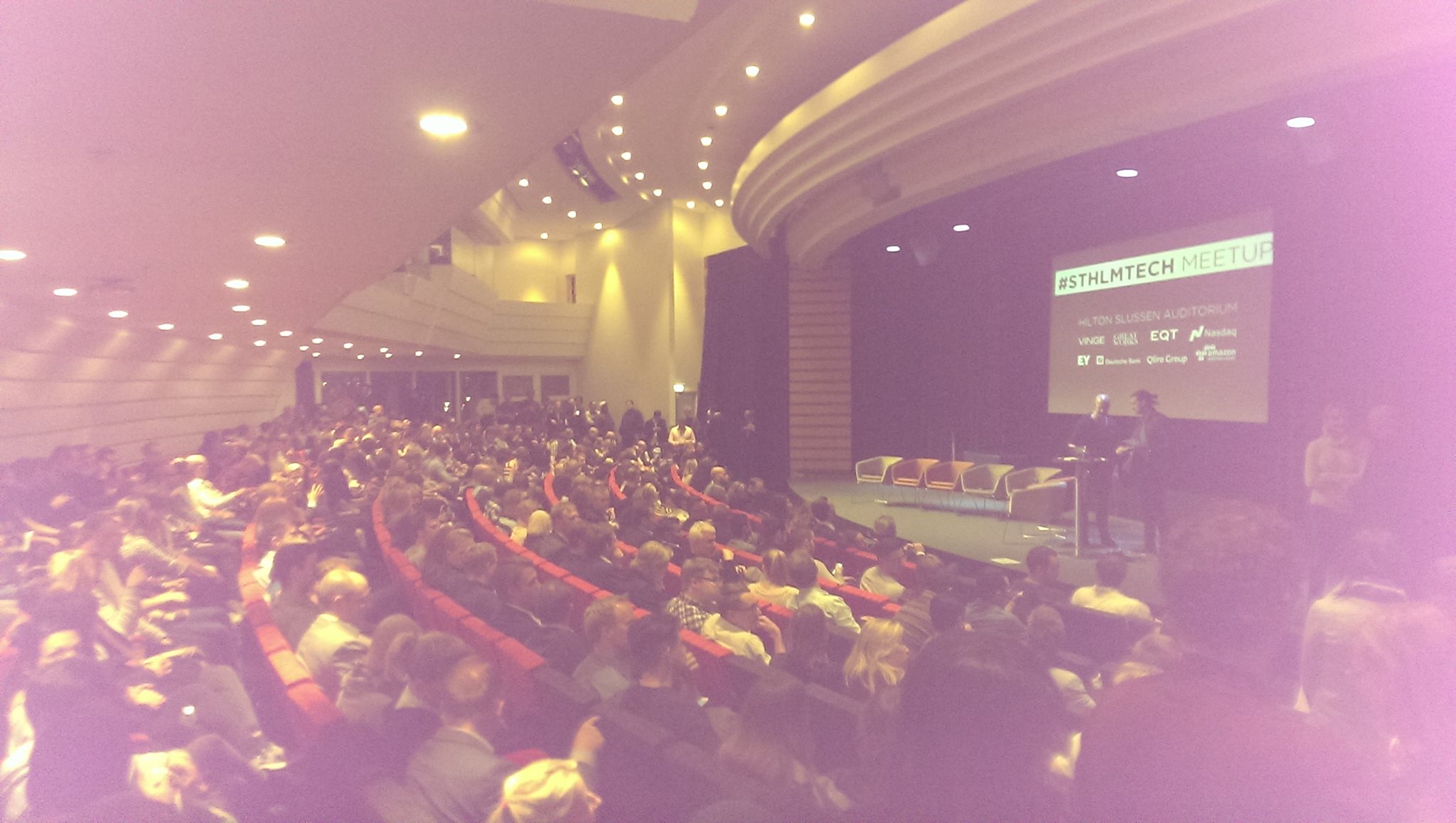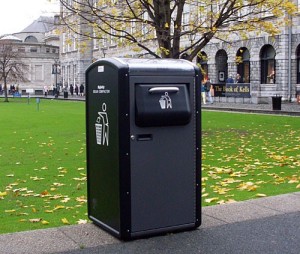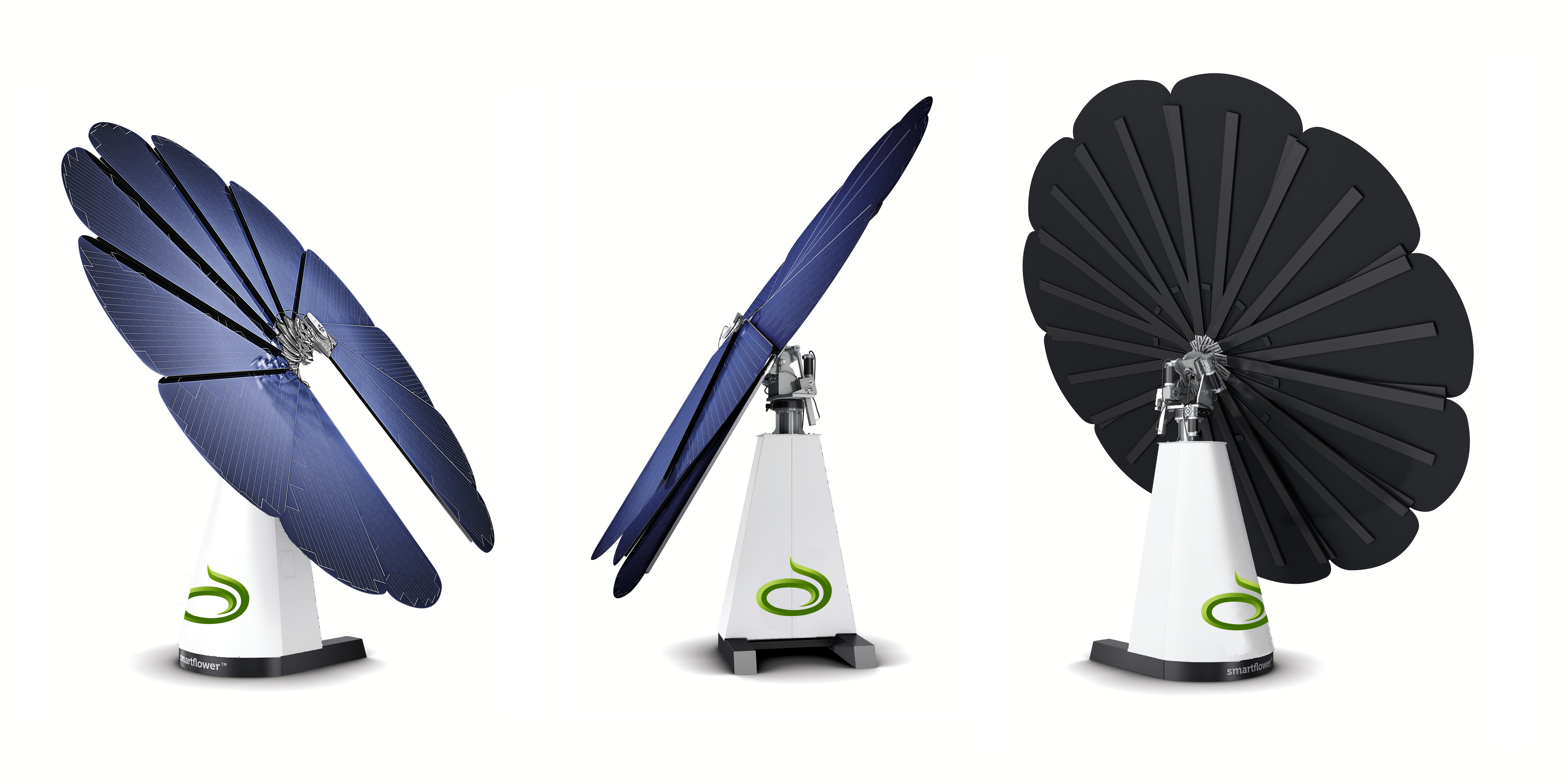Hey guys!
Last week I went to sthlm tech and forgot to write about, hence I write it now instead. As Tim said and most of you already know it was at Hilton Hotel at slussen, so it was close to my house and comfortable. I was there early and was able to get a seat, which was very nice, because it got really crowded and some people, including some class mates had to stand by the side. It was nice to see that many people there and I can understand why, because the whole presentation was really interesting.
In the beginning presented all the big tech-investments made this week, they presented some founders and what they had created. Everything was very up to date, and it felt like being in a room where stuff actually happen, with people that push boundaries every day.
A big part of the presentation later on focused on the refugee problem that is occurring all over Europe at the moment and especially how the tech-society can help. I right away got to thinking about Sophie Lööbs idea that she presented in class during the elevator pitches. The one with the app, that gets companies in contact with refugees that specific skill set. I also read a couple a weeks ago about an effort made by the government to lower the unemployment rate. To do this they were going to invest 1,3 billion SEK, if I am not mistaken. Might be a side not I realized already during the presentation, and that those kind of innovations are not really what they are search for perhaps, but still interesting way to solve a problem that is out there.
I liked the app which was presented during this part, called “Welcome”. The idea was simple in itself, giving the user information within the app on Sweden and how things work here more or less. Even so, I saw a clear limitation with it; that you need to own a smart phone as you arrive. I don’t exactly how many bring their phones, but I imagine few refugees come here with smart phones. Still though, the main idea of the app is beautiful and I liked the part where refugees could get in contact with local Swedish people. Nevertheless, I believe it is going to be hard to get a big amount of people to use the app without gaining anything, sadly, few people volunteer to do this type of things.
The second part dealing with the refugee problem was a bit simpler. A company, similar to the Sandbox, holds a kind of Hackathon where the purpose and theme is to help refugees. I like the idea of Hackathons, I do not believe they always create direct results, even so they do always create indirect results; in contacting ambitious, driven people. So maybe they won’t solve all the issues right away, but I believe they will create a domino effect.
Later on, international investors presented how different their ‘Startup-atmosphere’ is back home and this got me thinking of what Serdar said in the being of the course. That it is always important, if not essential, to have local knowledge, having local partners that know the culture. Because, as they presented here, most of their ways of seeing or solving problems where alien to me.
The last part, as Tim wrote last week, was a bit unorthodox. I did not really agree with the investors and thought they behaved unprofessional. Nevertheless, this is how the world works, sometimes you pitch an idea and get laughed at, and it might be hard put I believe this guy, who came up on stage and went through this still trying to keep strong, will succeed if he dusts himself of and continue afterwards. It is as the question on the exam;” who should you believe?” in yourself.

Liked it? Why not to share then?




